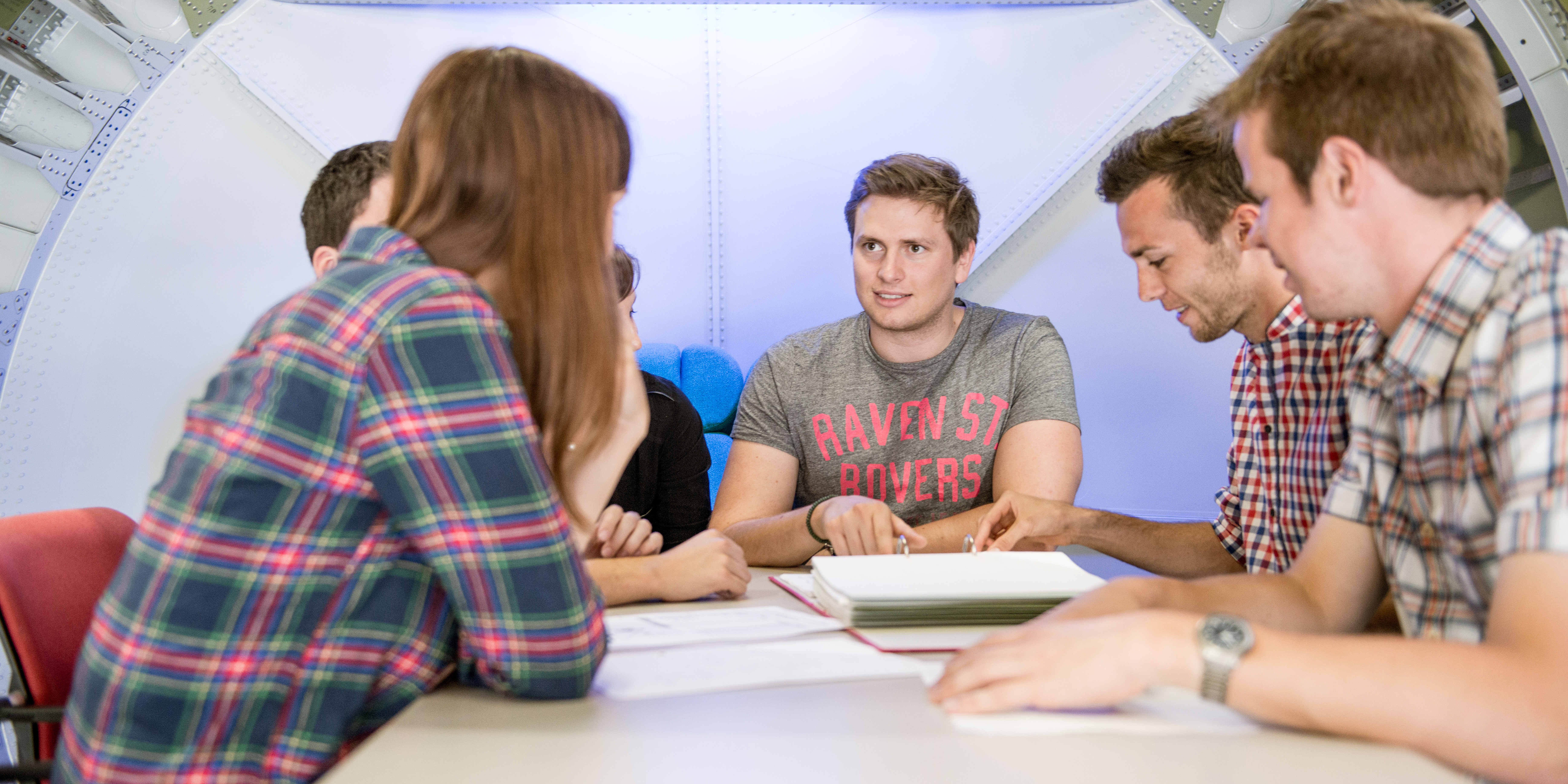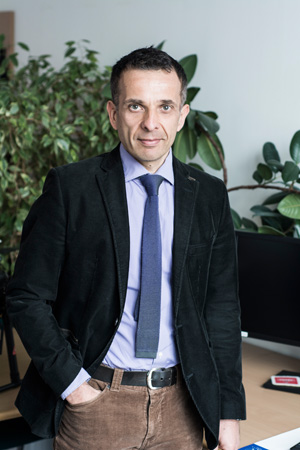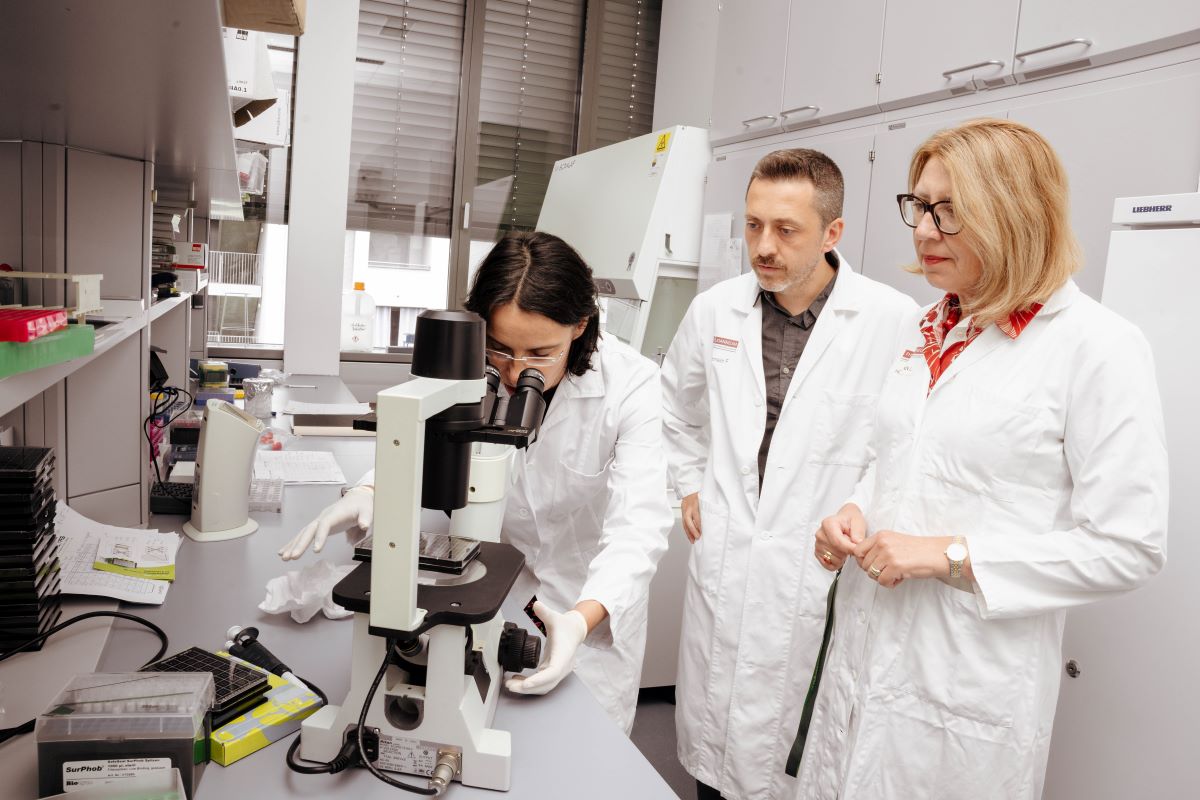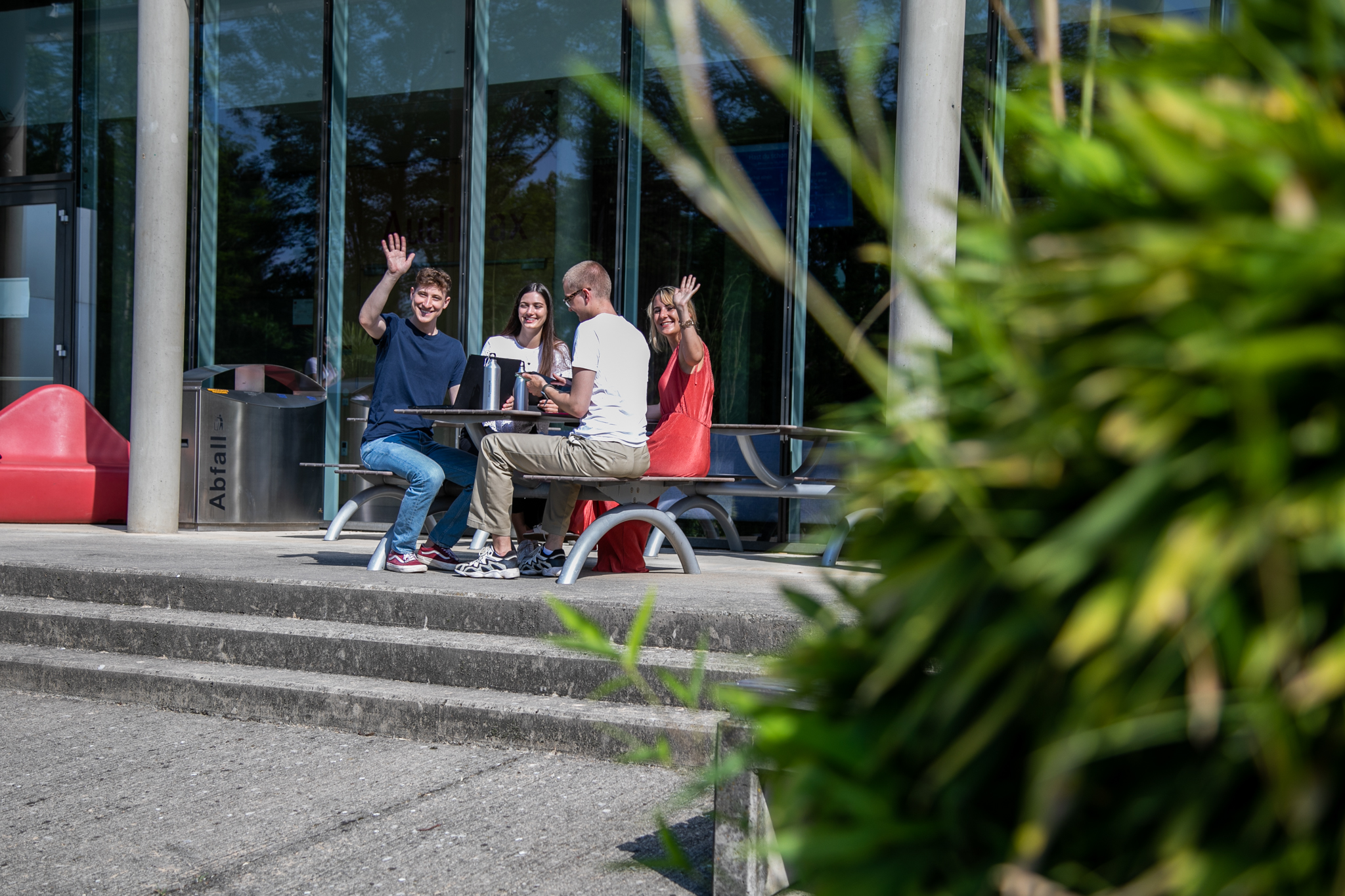For twelve years Bernd Messnarz has taught students at FH JOANNEUM all the maths and physics they need to know to make flying objects take off, stay in the air and land safely. He tells us a little about his award-winning teaching.
The significance of Newtonian axioms for flight control
prm.fh-joanneum
Bernd Messnarz teaches Aviation students the fundamentals of science before delving into aircraft technology. (© FH JOANNEUM / Stefan Leitner)
Students on the Aviation degree programme are usually extremely motivated and fascinated by every aspect of flying. This fascination includes everything from the technology in the various types of aircraft through to actually piloting the aircraft. Their primary interest lies in areas of application including aircraft construction, avionics and aerodynamics, rather than in lectures on pure maths, physics and IT. Even so, the fundamentals of science are the essential basis, and must be taught before focusing on the specialised technical know-how.
Scientific principles. Sounds awkward, and isn’t particularly popular with many students. They ask themselves why they have to learn this. How will it help them in their later career? What’s that got to do with aviation? The result: a lower level of motivation on courses not directly associated with the discipline. Bernd Messnarz, a member of staff at the Institute of Aviation, rises to this challenge, and exceptionally successfully.
Boosting motivation
“An important goal is to extend the existing motivation for aviation to cover its mathematical and technical principles,” explains Bernd Messnarz. In order to achieve this he applies ** motivational measures** in his teaching. In his lectures Bernd Messnarz ensures that, when introducing new topics and difficult content, he clearly outlines their relevance to aviation. He does this using examples taken from practice, or by listing the achievements which wouldn’t have been possible without this fundamental scientific basis.
One example: the students are naturally very interested in the flight control system used on the Airbus A380. Bernd Messnarz shows them how understanding this system involves everything from Newtonian axioms and differential equations to computer simulations. A basic knowledge of physics, maths and IT is a key prerequisite for understanding and further developing the flight control system.
“To prevent students getting out of their depth, it’s important to structure the content properly and to plan the lectures clearly. It’s essential to put yourself in the students’ shoes and build on the knowledge they already have, as well as to regularly highlight their previous learning successes,” says Bernd Messnarz. The skills they acquire are always a mix of factual knowledge and an understanding of the logical connections. Repeating, parrot-fashion, is not the aim. When it comes to the fundamental principles, a deep understanding of the connections is important if that knowledge is to be stored for the long-term and applied in professional life. Making connections and independently developing the content results in better learning outcomes.
Sparking enthusiasm
Lecturers able to convey their own enthusiasm increase their students’ willingness to examine the fundamental mathematical and scientific principles. Hiding behind a screen to read from a PowerPoint presentation is as much a hindrance as failing to pay attention to the audience. A feel for the students’ level of attentiveness and understanding of the content is needed if the lecturer is to actively respond to negative signs from their audience.
During the later semesters in particular, involvement in projects is highly motivating. Therefore Bernd Messnarz uses his classes to report on current research projects at the Institute and their exciting findings. He regularly involves students in his projects, and reports on the methods and the fundamental scientific principles which are being applied.
Assessing performance
Grading is another didactic tool, and relies on transparency and a relatively simple structure. Bernd Messnarz has found that his students can be motivated for exercises by a bonus points system. They are regularly set tasks in his classes which they then work on at home. When the students solve the exercises on their own before the next unit they collect bonus points, and these are added to the final examination result. The system motivates the students to actively participate in classes, and makes it easier for them to follow the modular course content.
Teaching Award
His students confirm that Bernd Messnarz’s teaching is outstandingly good. Bernd Messnarz received the Teaching Award three times for his concepts and methods, making him the record holder of this internal FH award. On the Bachelor’s degree programme in Aviation he teaches Physics, Applied Mathematics 3, Flight Mechanics and Simulation, and Fundamentals of Control Engineering and Systems Theory. On the Master’s degree course of the same name, his focus is on Flight Control Systems.

Photo: (© FH JOANNEUM)
Bernd Messnarz received the Teaching Award three times.











